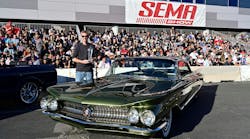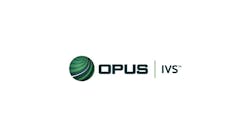RELATED STORIES
With the national elections behind us, and many state legislatures closing up shop for the holidays, the collision repair industry will head into 2009 with an eye on state-level reforms of insurance industry practices, and facing an uncertain economy.
Democrats swept the national and many state elections on Nov. 4, but it remains unclear exactly how issues important to repairers might be affected. While Democrats have traditionally been more sympathetic to the repair industry on issues like steering, insurance regulation and labor rates, there are significant differences on other issues like taxes and environmental policy. The biggest question mark right now is the economy and the potential collapse of the U.S. auto industry, which could have rippling effects throughout the aftermarket and repair segment.
“How exactly is the new administration going to stimulate the economy?” says Gary Wano, chairman of the Society of Collision Repair Specialists (SCRS) and owner of G.W. & Son Auto Body Shop in Oklahoma City. “If a lot of people are losing their jobs, then we’re going to see our repair work decline because customers are going to put that off as long as possible.”
“The economy is going to drive everything,” says Richard Steffen, lobbyist for the Collision Repair Association of California (CRA). “In California, we have a $23 billion budget deficit, and they may extend the sales tax to auto repairs for the very first time.”
Also looming large is the failure (so far) of the government to come up with a way to salvage faltering automakers General Motors, Ford and Chrysler. While many feel that the Detroit manufacturers should restructure through bankruptcy, the industry-funded Center for Automotive Research estimates that the failure of the three companies could eliminate 3 million jobs in the United States in the first year, and cost the government more than $156 billion over three years.
“If the big automakers go down, that will hurt all of us,” says Mike Orso, president of the New York State Auto Collision Technicians Association (NYSACTA) and owner of Nick Orso’s Body Shop in Syracuse. “We may not be able to buy parts, and there will be some spot shortages that affect the industry directly. At the same time, they can’t keep going the way they are going. They have to be held to a different standard, and the administration has to have the sense to tell them what to do with the money if they bail them out.”
At the federal level, the only major piece of potential legislation that could impact the collision industry is the proposed move to an Optional Federal Charter (OFC) to provide federal regulation of the insurance industry. The current bill (called the National Insurance Act) is primarily focused on helping insurance companies compete internationally.
Also high on the wish list for many repair groups is a rollback of the McCarran-Ferguson Act, which exempts insurance companies from federal anti-trust regulation. The involvement of large insurance companies in the recent economic meltdown has revived interest in reevaluating the law, but the insurance industry and most state governments are opposed to the change.
So far, it’s not clear whether the National Insurance Act would have much impact on the property/casualty market (the insurance industry has differing opinions on the impact of the law). Ironically, a move to federal insurance regulation might actually be a step backward some state collision repair associations, who have made gains within their own legislatures and insurance departments on issues like steering and labor rates.
“Many SCRS affiliates feel they might lose some of the control they have within state legislatures if there is a greater federal role,” says Steve Regan, spokesman for the Massachusetts Auto Body Association (MABA), and a member of the SCRS legislative committee. “There has been an enormous amount of success in the last three or four years on the state level with respect to collision repair legislation.”
There aren’t any major changes to environmental regulations expected under the new administration. “The damage has been done as far as waterborne paints and OSHA regulations,” Orso says.
“A lot of us are becoming greener anyway,” Wano adds. “We may see a lot of repairers that are willing to jump on the waterborne bandwagon before there’s additional regulation. As far as mandates or new hazardous materials sanctions, I really feel that if there’s anything new coming, it will be so far down the road that we’ll have ample time to prepare.”
The economic downturn could stymie progress on environmental issues, however. “Without the financial resources, these mandates may be unattainable, not because of a lack of will, but because of a lack of money,” Regan says.
All politics is local
State collision repair associations have made some gains over the past two years on anti-steering legislation. In 2008, key pieces of legislation moved forward in a number of states on labor rates, steering and other issues that could help set precedents in other states.
The Michigan House of Representatives passed a ban on insurer-owned body shops in November. The bill is still pending approval in the state senate.
Proposed changes in Massachusetts that could impact labor rates are now being considered by a special commission (a report is due in December), while the Rhode Island Supreme Court will hear arguments regarding the state’s labor rate survey law this winter.
In New York, Democrats took control of both houses of the state legislature (along with the governor’s office) for the first time since 1935, but Orso says that the shift in power won’t impact repairers much. “We have friends on both sides of the aisle that have helped the industry,” Orso says. “We’re not overly concerned about anything there.”
In California, a year-long working group comprised of lobbyists and insurers disbanded in October, and are now awaiting Insurance Commissioner Steve Poizner’s proposed rules on steering, capping and labor rate surveys.
Poizner will likely run for governor in 2010, so industry organizations there are closely watching potential candidates for the post when it opens up.
The CRA, meanwhile, is focusing on improving the industry’s interactions with insurers. “We place an emphasis on having a sound working relationship with insurers,” Steffen says. “When you work through legislation, you’re taking a large stick and batting the industry with it, instead of working together to solve common problems like cycle times and the use of recycled parts. We’re more concerned with enforcing the current laws than enacting new ones.”
Wano also see opportunities to work more closely with the insurance industry to resolve some of these issues outside of the legislative process. Earlier this year, the SCRS released a report on insurance company abuse that has helped spur discussions with the insurance industry.
“That has been a great tool for giving us the opportunity to sit down with insurers at the corporate level,” Wano says. “They want to understand why we hold that position. It also gives us the opportunity to let the carrier know that we realize this is a give and take. We would like to see reform between the relationships between repairers and insurers.”

